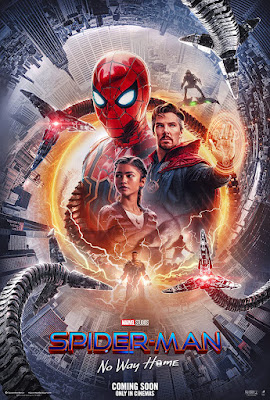Spoilers through seasons 1-3.

If you don’t know, The Magnus Archives is a horror podcast that starts out as mostly disconnected tales of terror and develops more of a story line as it goes on. The Magnus Institute collects statements of people who had a terrifying supernatural encounter. Jonathan Sims, the new archivist (not to be confused with Jonathan Sims the author of the podcast), reads and records those statements for posterity and comments on them.
He is, at the beginning, extremely skeptical and comes off as a bit of a pretentious asshole. For a while he is the only character we hear. He does, however, mention three assistants. Sasha, who is good with computers, Tim, who flirts info out of people and Martin, who Jon has taken a particular dislike to due to his perceived incompetence. Martin is the first other main character we hear talk and from that first moment I (and many others listening to the podcast) fell in love. Martin wanted to impress Jon to prove himself and maybe get Jon to think better of him and got besieged by a worm monster for his troubles. He had been gone for two weeks at that point without anyone checking up on him.
As the seasons go on the Martin we get to know remains caring and sweet - although he can be petty, sarcastic and cutting when he wants to be. He makes tea for everyone, stubbornly checks up on an increasingly frazzled - and extremely unwilling - Jon, forgives easily, accepts hostile behavior and tries to keep as much harmony as he can. He is criticized for his efforts by his colleagues who perceive his behavior as weakness, naivety or cowardice.
Jon and the audience, meanwhile, learn that Martin had faked his CV to get the job, which he desperately needs to support his sick mother and that he has been working to support her since he was a teenager.
By season 3 I am deeply invested in the characters. They developed and changed in response to the horror that their job has become and are now trying to free themselves of a contract and a nightmare boss (while also trying to stop the apocalypse). Tricking the nightmare boss involves distracting him and distracting him involves having him pry open your deepest trauma.
It’s a good plan, one Martin came up with, and because Martin came up with it, he decides he will be the one to sit through this psychological torture session. Earlier in the season the audience has been witness to such a psychological torture session featuring a different character and has heard how awful it was. That did not, however, prepare me in any way, shape or form for what would happen in episode 118.
At first it seems like the nightmare boss would go for Martin’s obvious romantic feelings for Jon. He does bypass those and instead digs for Martin’s childhood.
When Martin was young, his mother got diagnosed with an unspecified incurable disease. The father promptly left the family because he did not want to deal with that. Martin now devoted himself to helping and supporting a mother that grew increasingly resentful and hostile. While Martin gave up his life almost completely, dropping out of school, never forging any lasting friendships or romantic relationships, abandoning his dreams, she never thanked him and made him feel like every effort he took to help her wasn’t only not appreciated or even unwelcome but actually resented. Nowadays, his mother is in a nursing home and mostly does not even want to have contact with him. The nightmare boss finally reveals that Martin’s deepest fears are right and that his mother does in fact hate him. She hates him because he reminds her of his father, the husband who left her. She hates him because despite her resentment, she is reliant on his help. And no matter what Martin does or says or how much he tries, there is nothing he can do to make her, who has been the center of his life since he was a young teenager, even like - let alone love - him.
There are many aspects of this I find so deeply tragic. Martin has always suspected that his mother felt this way but hoped - desperately - to be wrong. He developed a skewed perspective of what love means as a result, which influences every relationship he attempts to forge. The fact that it’s so deeply personal but fully out of his control since he can’t influence it in the least. And mostly, maybe, the sheer mundanity of it all.
Despite all the creative and deeply unsettling supernatural horrors the podcast gifts us, there is nothing in it that fucks me up deeper than this. Martin, who is so stubbornly kind and caring, has, at this point, not been loved by anyone since he was a young teenager. It brilliantly recontextualizes what we saw of him throughout the show and gives the character tragic complexity. When I first listened to this episode I had to stop the podcast and take a couple of minutes to cry for the very real pain I felt for this fictional character and to this day this episode brings tears to my eyes.
Any podcast that can make me feel so deeply is worth checking out!
Satori over and out
P.S. Have my authentic reactions I texted my friend who got me into The Magnus Archives:
[5/14/2019, 20:27] Me: Ohhhhhh goddddddd
[5/14/2019, 20:28] Me: I'm crying for Martin right now
[5/14/2019, 20:28] Me: That's godddd that's terrible that's so terrible
[5/14/2019, 20:58] Me: I don't think I'll ever be able to experience joy again




